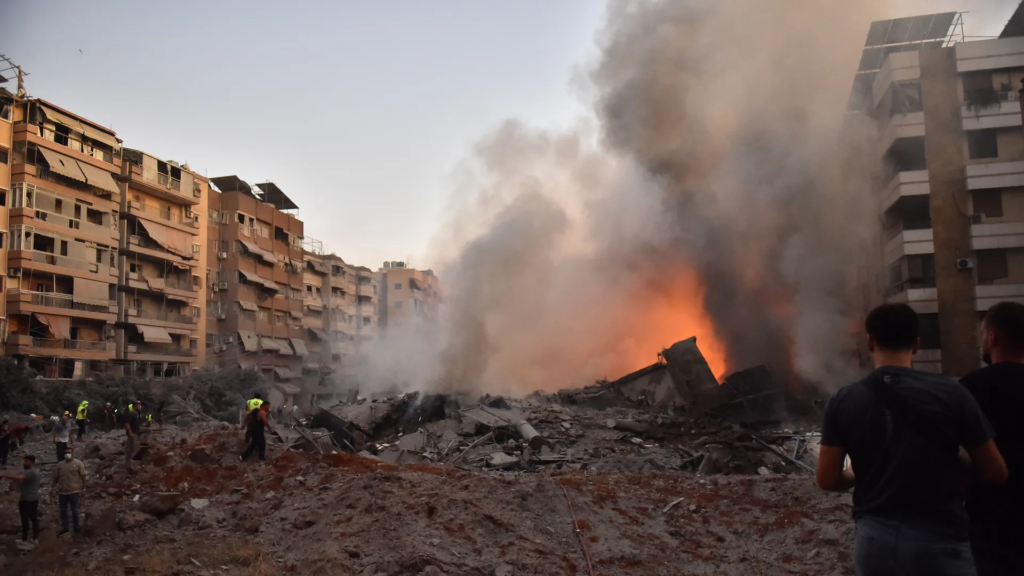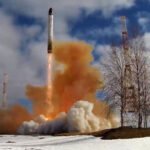In a major escalation of tensions, Israel’s military has confirmed the death of Hezbollah leader Hassan Nasrallah following a precise airstrike on the militant group’s headquarters in Beirut, Lebanon. Nasrallah, who led the Iran-backed Hezbollah for over three decades, was reportedly killed in an attack that marks a significant blow to the group and the wider conflict in the region. This event has the potential to reshape the dynamics between Israel and its long-time adversary Hezbollah, further intensifying the Israel-Hezbollah conflict.
Israel’s “Simple Message”
Following the attack, Israel’s army chief, Lieutenant General Herzi Halevi, sent a stern message: anyone who poses a threat to Israeli citizens will be reach, regardless of their location. “We will know how to reach them,” said Halevi, emphasizing the calculate precision with which the airstrike was carrie out. The strike was reportedly in the works for a long time and was execute with careful preparation to target Hezbollah leadership at the right moment.
The Israeli army has intensified its operations against Hezbollah in recent weeks, and this successful strike, eliminating Hassan Nasrallah, represents a critical achievement in their ongoing campaign. In addition to Nasrallah, senior Hezbollah commander Ali Karaki was also killed during the attack, further crippling the group’s leadership structure.
Impact on Hezbollah
The killing of Nasrallah is seen as a devastating blow to Hezbollah, a militant group that has evolved from a local militia into a powerful regional force deeply connected to Iran’s political and military objectives. Since assuming leadership in the early 1990s, Nasrallah transformed Hezbollah into Iran’s most powerful proxy in the Middle East, leading the group in its fight against Israel and other Western interests.
Despite the reports from Israel, Hezbollah has yet to issue an official statement confirming Nasrallah’s death. Iranian state media has also reported conflicting accounts regarding his status, leaving a cloud of uncertainty surrounding the aftermath of the airstrike. Tehran is reportedly working to verify whether the Hezbollah leader was indeed kill.
Escalating Conflict Between Israel and Hezbollah
The conflict between Israel and Hezbollah has been escalating over the past weeks, with Israeli forces conducting increased airstrikes on Hezbollah positions across southern Lebanon. These strikes have targeted not only key military installations but also senior Hezbollah commanders, significantly weakening the group’s operational capabilities. Lebanese officials have report that more than 600 people have kill in the ongoing Israeli strikes, including 50 children.
Israel maintains that these airstrikes are necessary to halt Hezbollah’s rocket attacks and prevent the militant group from advancing closer to the Israeli border. Hezbollah, which has a deep-rooted presence in Lebanon, has long been a source of tension for Israel, with both sides engaged in numerous clashes over the years. The death of Hassan Nasrallah may further fuel the already volatile relationship between the two parties.
What’s Next for Hezbollah?
If confirmed, the death of Hassan Nasrallah leaves Hezbollah in a vulnerable position. The group, deeply reliant on Iran for both financial and military support, now faces the challenge of leadership succession. With Ali Karaki, another senior commander, also killed, Hezbollah’s chain of command is significantly disrupt, which could weaken its influence in the region. However, the group has a long-standing network of supporters, and its next steps will depend on how quickly it can reorganize and whether it will retaliate against Israel.
Read More: Shop Air Conditioners offer Online at Best Price in India – Great Indian Festival 2024- Click Here
Conclusion
The killing of Hassan Nasrallah marks a pivotal moment in the ongoing conflict between Israel and Hezbollah. As both sides prepare for the next phase of the conflict, the death of Hezbollah’s leader could either escalate the violence or create new opportunities for diplomacy, though the latter seems less likely at this point. Israel has made it clear that its military operations will continue as long as Hezbollah remains a threat to its citizens. The region waits to see how Hezbollah will respond to the loss of its long-time leader.









